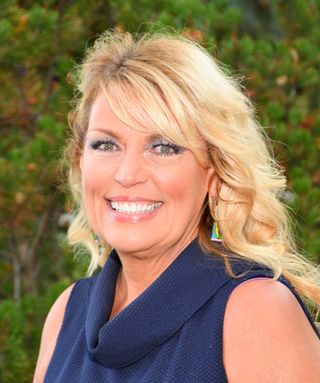By Jerri Kemble, Assistant Superintendent, Leading, Learning & Technology (Lawrence Public Schools, USD497)
Click here to read Part 1 of this series

Seven school districts in Kansas have a different look and feel this school year. These “Mercury” school districts, named after the seven Mercury astronauts, led the “Moonshot” Redesign for the Kansas State Board of Education.
The Board, along with the Commissioner of Education, Dr. Randy Watson, have encouraged school districts to redesign the way they are doing business. Watson is asking school professionals to focus on the future for Kansas students. He cites statistics on the future of work from a Georgetown University study that shows that 70% of Kansas jobs will require more than a high school diploma. Couple this prediction with the dismal Kansas Post-secondary success rates that show that of 100 Kansas graduates 86 will graduate from high school, 69 will attend a 2-4 year post-secondary institution, 45 of those original 100 will complete one year of college and a mere 31 will earn a post-secondary credential with labor market value. Kansans know something needs to change.
The seven Mercury schools that have taken on the redesign challenge are creating schools based on the needs of their specific students and families, instead of the agrarian calendar that has determined school schedules in the past.
One of the Mercury schools is the Wellington School District, an agriculturally-based district in southern Kansas. Their redesign began when the superintendent held community discussions with parents and business leaders to ask what skills their students needed after graduation.
Wellington students were not scoring satisfactorily on ACT tests and state assessments, they were showing a rising need for social-emotional support, and office referrals were on the rise. It was obvious that students were not being prepared for the world of work or post-secondary education.
The staff, armed with this data, began looking for new ways to educate their students. They visited schools across the country and became interested in Summit Learning, a free program that is focused on the four principles of Kansas school redesign: student success skills, community partnerships, personalized learning, and real-world learning applications.
Today, teachers in Wellington are helping students build life-skills like self-regulation, goal setting, and time management while learning through projects instead of chapters in a textbook. Students learn at their own pace through a digital platform that has replaced the four core content classes of English, math, science and social studies. Teachers guide students individually and spend less time in lecture-style groups. Social-emotional needs are being addressed and student internships with business and industry mentors are giving students experiences in their areas of interest. Introducing this kind of change required extensive parent and community conversations, as well as 50 hours of training for the teachers.
Stephanie Smith, assistant principal of Wellington High School, felt that the success has come through the support of the district office, the community meetings, and the teachers looking at the data and realizing that change was needed. Smith notes that it has not been easy to make a change of this magnitude. Not all teachers or all parents have been supportive of the change, but the further the school gets into the redesign process, the more evident it is that the changes were necessary.
When asked about the lessons she has learned, Smith notes that this kind of second-order change is difficult and it requires perseverance. “We know now that we can adapt and change. I had every faith in our teachers, and I knew they could be leaders and change agents. The delivery of the learning is the thing that has changed, but not our passion for teaching children. We now educate the whole child instead of one academic content at a time.”
Jerri Kemble is the Assistant Superintendent, Leading, Learning & Technology for Lawrence Public Schools (KS), which serves approximately 12,000 students in 22 schools.

